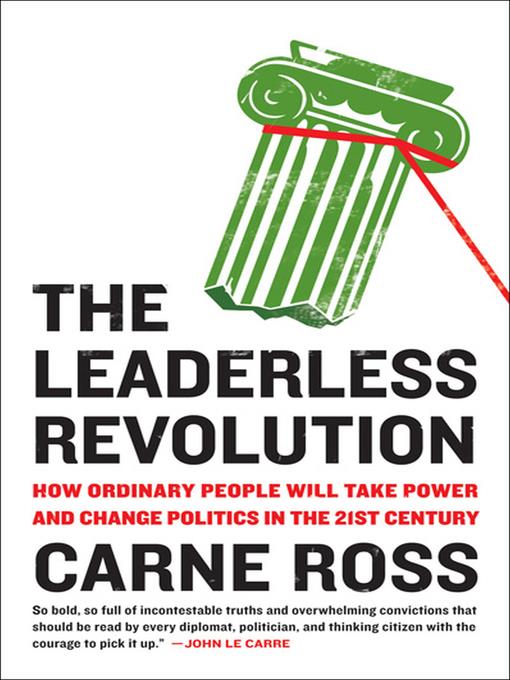
The Leaderless Revolution
How Ordinary People Will Take Power and Change Politics in the 21st Century
کتاب های مرتبط
- اطلاعات
- نقد و بررسی
- دیدگاه کاربران
نقد و بررسی

January 2, 2012
Writing before the Occupy movement erupted, Ross (Independent Diplomat: Dispatches from an Unaccountable Elite) explores how the current interconnectedness of the world provides a fecund framework for leaderless revolutions, and why we should take advantage of it. Drawing on his experience as a former British diplomat, Ross believes we need to replace the current political system with what Stanford Professor James Fishkin calls "deliberative democracy," wherein a representative sample of individuals are brought together to decide on an issue. Ross wants people to take back the power from special interest groups and lobbyists and make their own decisions in a collaborative environment, trusting people to manage their own affairs. He cites successful examples in post-Katrina New Orleans (where 92% of involved citizens supported the "Unified Plan" for rebuilding the city) and in Porto Alegre, Brazil. Though Ross urges individuals to act, he provides no real specifics on how to proceed beyond encouraging people to locate their convictions, "ct as if the means are the end," and use nonviolence. It may be that the leaderless nature of the revolution prevents Ross from being too prescriptive, but readers expecting a precise answer to the titular "How" will be disappointed.

December 15, 2011
A personal assessment of the transforming power of consultative democracy in the coming century. Political advisor Ross (Independent Diplomat: Dispatches from an Unaccountable Elite, 2007, etc.) looks back at his disaffection with the British diplomatic service and resignation in the wake of the exposure, and subsequent suicide, of the government's top weapons-inspection scientist David Kelly. He had been intimately involved with Iraq sanctions and the buildup to war, as well as many other conflict situations, and he portrays the violence resulting from official "group think" with the Milgram experiment's proof of people's unquestioning potential for cruelty. The author provides many fascinating personal insights into the crises not only in Iraq, but also Afghanistan, Kosovo, Mauretania and Sudan. While many will be drawn to this aspect of his account, Ross' concern is not the past but the lessons to be applied now. In his view, the nation-state basis for the international diplomatic order has been undermined by the increasing power of particular interests acting through global institutions. Writing that society requires "authority in order to enjoy peace and stability," Ross questions authority itself by pointing to some of the worst outrages in human history--e.g., Nazi Germany, Stalin's Soviet Union. In democracies as well, he writes, "the very rules and institutions established to protect us in fact do the opposite," mainly because people tend to abdicate responsibility when they empower elected representatives to act on their behalf. Ross is an advocate for deliberative democracy--typified by Gandhi's nonviolent movement against the British in the 1920s and '30s--which he distinguishes from terrorism, anarchism and representative government. Intriguing but not entirely convincing. Stay tuned to see if the author's contentions play out in the next decade or so.
(COPYRIGHT (2011) KIRKUS REVIEWS/NIELSEN BUSINESS MEDIA, INC. ALL RIGHTS RESERVED.)

























دیدگاه کاربران